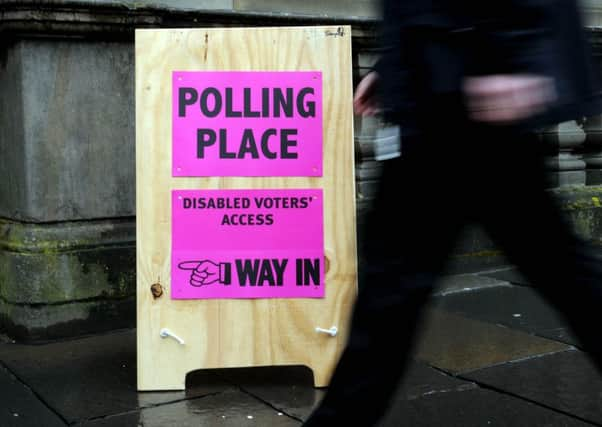Ministers accused of targeting the poor with new voter ID plans


Trials of the ID scheme will be carried out at a number of polling stations across England in the 2018 local elections, before a decision is taken on whether to roll out the measure for the whole country.
But some leading Labour figures have warned it could be used keep the party’s supporters from being able to cast a ballot.
Advertisement
Hide AdAdvertisement
Hide AdElection officials and police will also be given new powers to tackle intimidation of voters by activists. And political activists will be banned from collecting postal votes for submission, a practice known as “harvesting”.
The reforms were among recommendations contained in a report in August by former cabinet minister Sir Eric Pickles, which was commissioned amid concerns about electoral fraud. It followed the mayoral ballot in the east London borough of Tower Hamlets, which was overturned in 2015 over a number of corrupt and illegal practices.
Labour former London mayor Ken Livingstone said the move was an overreaction to a very small number of electoral fraud cases.
He said the poorest people would not have passports or access to utility bills in some cases.
“Just think the uproar there would be if we said, ‘There’s an awful lot of shoplifting going on, we are going to search every customer as they leave’,” he told the BBC.
“It is really bad to make life more difficult for the vast majority of people just when you are dealing with a handful of dodgy council candidates.
“The simple fact is, if there was widespread fraud, we’d all be supporting this, but it is a very, very small number of instances.
Advertisement
Hide AdAdvertisement
Hide Ad“And the real problem is, the people most likely not to have a a passport, or a driving licence, are going to be the poorest, and that, I suspect - once again, like the decision last year to knock a lot of people off the electoral register - will basically hit the Labour Party.”
Constitution minister Chris Skidmore said poor people would not be disenfranchised.
He told the BBC: “When it comes to the pilots, we have been very carefully calibrating those, so that there will be two models. One will be based on a driver’s licence, passport, photographic ID. The other will be based on utility bills and even also proof of electoral registration.
“So, when it comes to the level of documentation, it will ensure that everyone gets the chance to vote.”
Sir Eric said international observers had warned the UK’s system was “peculiarly vulnerable” to fraud because it is a trust-based system.
Labour former minister John Spellar told BBC Radio Four’s World at One: “This is all part of a pattern of the Conservatives, following on the script from their Republican colleagues in the United States, trying to discourage voter registration, and discourage voter turn-out.
“This is a sledgehammer to crack a nut, but there is a political purpose behind it from the Conservative Party.”
Advertisement
Hide AdAdvertisement
Hide AdLabour’s shadow minister for voter engagement, Cat Smith, said: “Labour supports measures to tackle electoral fraud and will be backing a number of the reasonable proposals planned by the Government.
“However, requiring voters to produce specific forms of photo ID risks denying millions of electors a vote.”
Under the new rules, electors in the chosen pilot areas will be required to bring ID to prove who they are before voting, as already happens in Northern Ireland.
Different council areas will trial different types of photo ID including driving licences, passports or utility bills to prove addresses. The Government has ruled out the creation of a new form of photo ID for voting.
If successful, the measure - long supported by the Electoral Commission - could be introduced for general elections and other polls.
Electoral Commission chief executive Claire Bassett said: “Having undertaken detailed work, the commission’s view is that the use of photographic ID is the most effective proof against personation.
“However, we look forward to working with the Government and other partners to further explore the options in order to ensure voter confidence in the system.”
Electoral Reform Society chief executive Katie Ghose said: “There is simply no evidence to suggest that electoral fraud is widespread across the UK. Where it has occurred it has been isolated and should be tackled locally.
Advertisement
Hide AdAdvertisement
Hide Ad“Raising barriers to democratic participation could just put people off voting - and evidence from the US shows that it’s generally those already most excluded from the political process that are worst affected by strict ID laws.”